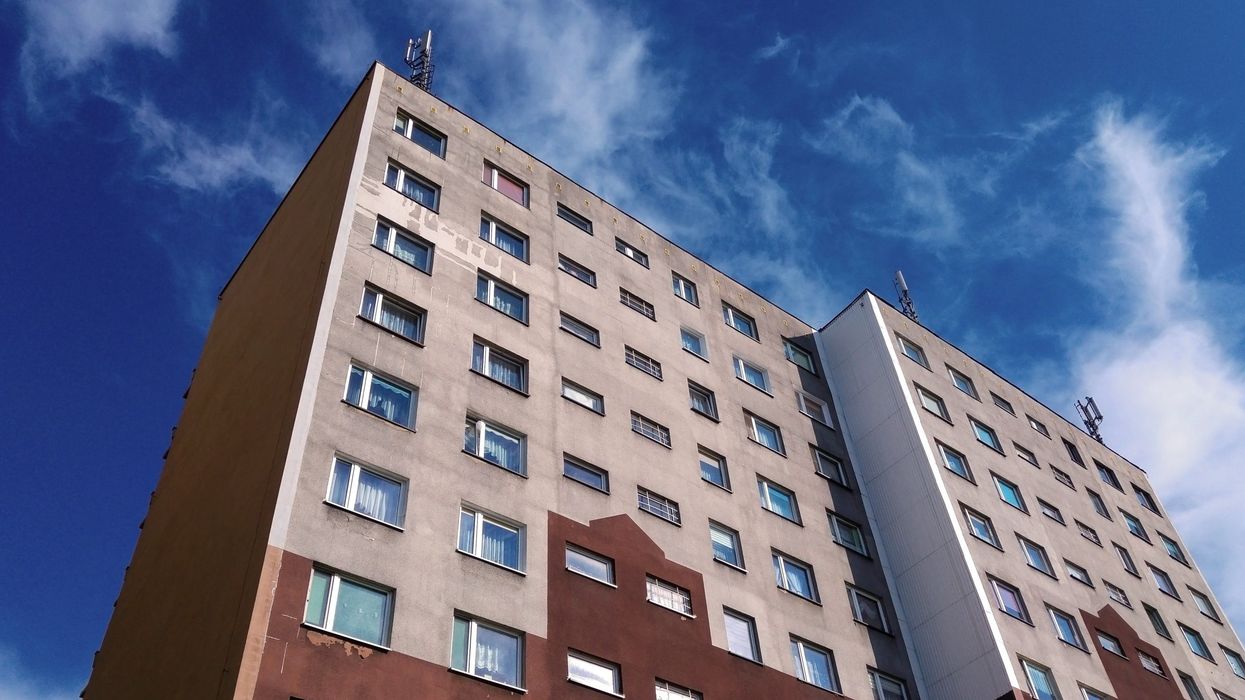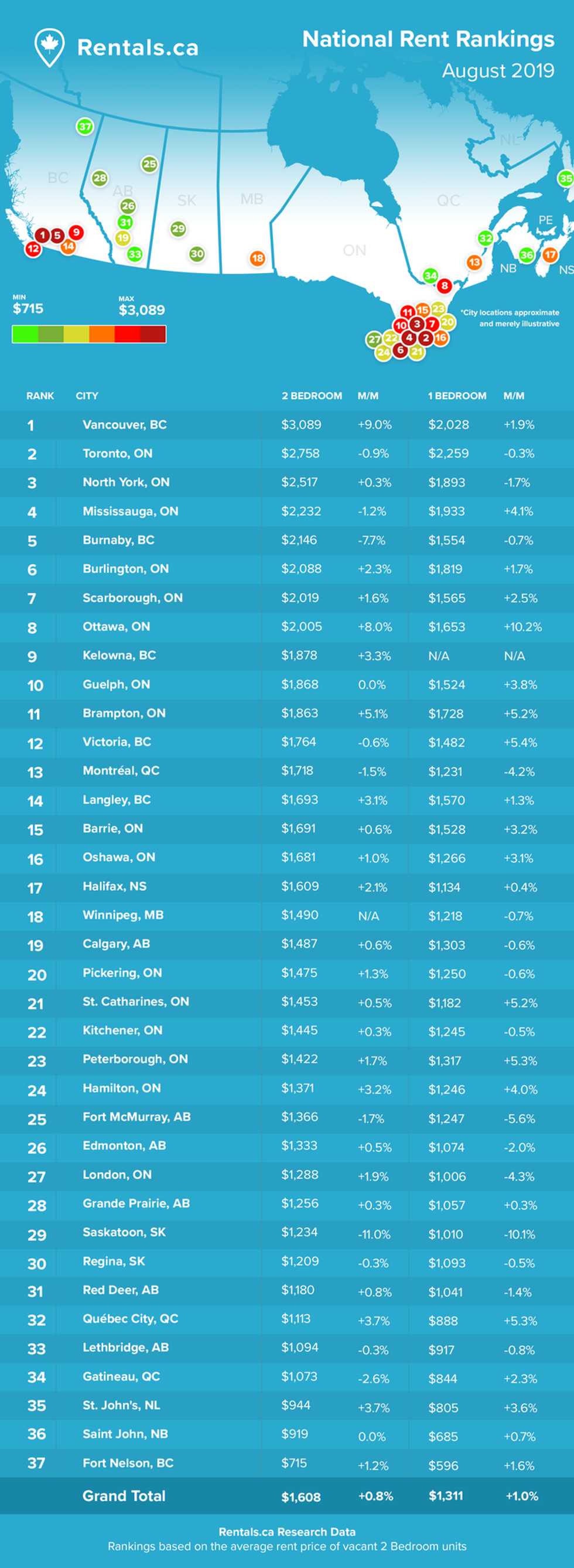Not only are homes becoming more unaffordable across Canada, but so it rent. Four in 10 Canadians spend more than one-third of their income on housing, while another one-third rely on their parents to help pay rental costs. Based on these stats alone, you’d think the rental market couldn’t get any worse.
Unfortunately, the latest national rent report by Rentals.ca and Bullpen Research & Consulting found that rental rates have risen dramatically in the past 18 months. This has hit low-income renters the hardest.
READ: This Is The Minimum Wage Needed To Rent A Two Bedroom In Canada
Based on Rentals.ca listing data from October 2018 to July 2019, the report mapped asking rents in the 10th, 25th, 75th and 90th percentiles. Rents in the 10th percentile saw the most growth, jumping 8.3 per cent. Prices rose from $900 to $975 per month on average across Canada.
In Toronto, however, the rent margin was far greater in the 10th percentile over 18 months. One bedroom units climbed 20 per cent, while two-bedroom apartments rose 14 per cent.
READ: Ontario’s 2020 Rent Increase Guideline To Go Up To 2.2 Per Cent
Based on these findings, the report determined that a minimum-wage worker would need to make $34.90 per hour to afford a one-bed unit in the 10th percentile. This wage would mean the cost of rent would only be 30 per cent of the tenant’s income, and thus be affordable by CMHC’s definition.
Toronto continues to have the most expensive rent for a one bedroom at $2,259. Vancouver, on the other hand, has the highest average cost for a two bedroom at $3,089.
High demand is what’s making prices soar. The national rent report noted that increased immigration and steady job growth have contributed to this, as well as the mortgage stress test. The latter has prevented some Canadians from entering the housing market, leaving renting as their only option.
“As expected, changes to the mortgage stress test last year pushed everyone down a rung on the property ladder, resulting in the highest rent growth occurring at the 10th percentile,” said Ben Myers, president of Bullpen Research & Consulting, in a press release. “This means the people who can least afford an increase in their monthly housing costs are the ones being subjected to the highest rent inflation.”
READ: Only 1 In 5 Families Can Afford A Toronto Home Due To High Prices
Overall, the average rent of all Canadian properties listed on Rentals.ca in July was $1,928 per month. This is a 1.3 per cent decrease month over month. Ontario had the highest average rent rates at $2,283, while Newfoundland and Labrador had the cheapest at $855.






















